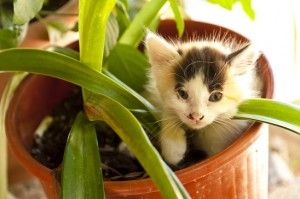Kidney disease in cats
Products that can help relieve your cat’s kidney disease:
What is kidney disease in cats?
Kidney disease is close to the most common problem in older cats. Kidney disease, or chronic renal failure, is often caused by other diseases and conditions. The first noticeable sign your cat may have kidney disease is if your cat drinks more than usual. Increased thirst, causing excess urination, is one of the symptoms of kidney disease. The reason your cat will drink more is because the kidney no longer has the ability to concentrate urine. Kidney failure is not noticeable until approximately 75 percent of the kidneys tissue doesn’t function anymore.
How is kidney disease in cats diagnosed?
Diagnosis is normally found through the veterinarian taking blood and urine samples and examining them. Noticeable symptoms of kidney disease in cats are a poor appetite, weight loss, dehydration, laziness, and depression. You may also note a decrease in the quality of your cat’s fur, vomiting, bad breath, or a mouth ulcer. These symptoms will become more prominent over time, as the disease develops.
What are the causes of kidney disease in cats?
Kidney disease can be hereditary, normally in Persian and Abyssinian breeds of cats. Most commonly the cause of kidney disease cannot be pinpointed. Sometimes kidney disease can be caused by bacterial infections, tumors, or toxins. If no specific underlying cause can be found then treatment is focused managing the disease by stopping it from furthering or worsening in the pet’s body. If a cause is diagnosed and able to be treated then it is a possibility to stop the disease.



